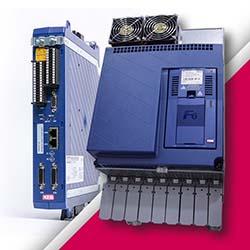Systems Integrators Say Composite Engineered Wood Flooring Offers Greater Value Than Concrete, Bar or Plank Grating Flooring Options for Elevated Work Platforms
According to respondents in the newly released “Optimizing Space and Supporting Automation with Elevated Flooring and Mezzanines” report, the three most commonly used elevated flooring types are concrete (70.2%), composite engineered wood flooring (59.0%), and bar or plank grate (49.0%).
A new research brief exploring preferences for selecting, implementing, and using elevated flooring systems in mezzanines and industrial work platforms found that — when compared to concrete or bar or plank grate elevated flooring — composite engineered wood flooring is considered by Systems Integrators to be:
• The most flexible for future changes (77.8%)
• The easiest to install (70.0%)
• The best value (66.7%)
• The most level surface (55.6%)
• The fastest to install (50%)
According to respondents in the newly released "Optimizing Space and Supporting Automation with Elevated Flooring and Mezzanines" report, the three most commonly used elevated flooring types are concrete (70.2%), composite engineered wood flooring (59.0%), and bar or plank grate (49.0%).
Of those three materials, the majority of those surveyed believe composite engineered wood flooring to be the surface that best addresses the leading operational challenges of elevated work platforms. Users and integrators say the top four challenges faced by operations using these structures are:
• Worker safety (Users: 51.3%; Integrators: 45.5%)
• Load carrying capacity (Users: 41.0%; Integrators: 72.7%)
• Capacity planning / Managing capacity / Optimizing load levels (Users: 33.3%; Integrators: 36.4%)
• Durability of the floor (Users: 28.2%; Integrators: 45.5%)
When asked what benefits participants expect to receive by utilizing composite engineered wood flooring as an elevated work platform surface, among the top responses were: Durability of the floor (41.9%); Worker safety (32.6%); and Load carrying capacity (20.9%). Rounding out the top six benefits were: Lower cost of structure (34.9%); Reduced construction time (25.6%); and Serviceable life of the floor (23.3%).
The "Optimizing Space and Supporting Automation with Elevated Flooring and Mezzanines" report is based on the findings of a reader survey conducted by Peerless Research Group (www.peerlessresearch.com) on behalf of Modern Materials Handling (www.mmh.com) for Cornerstone Specialty Wood Products, LLC® (www.resindek.com) in October 2020. Pre-qualified respondents were involved in decisions related to their companies' warehouse and distribution center (DC) operations. Sectors represented chemicals and pharmaceuticals, retail trade, warehousing and transportation, third-party logistics (3PL) service providers, and automotive and transportation equipment.
Respondents manage an average of 1.8 million total square footage, with 24.5% working in facilities under 50,000 square feet, and 27.7% operating facilities of 500,001 square feet or more. Those with an elevated work platform already in place (38.6%) report an average of 206,837 elevated square feet.
With more warehouses and DCs short on both labor and space as they respond to growing customer expectations to get more shipments out the door as quickly and safely as possible, operations managers are increasingly looking up. When asked why, survey participants indicated that adding single- and multi-tiered mezzanines and industrial work platforms result in a range of benefits, including:
• Capacity planning / Managing capacity / Optimizing load levels (60.0%)
• Upgraded throughput (44.4%)
• Reduced operating costs (40.0%)
• Improved worker safety (28.9%)
• Increased worker comfort (28.9%)
The "Optimizing Space and Supporting Automation with Elevated Flooring and Mezzanines" research brief is available at https://www.resindek.com/research-compares-elevated-flooring-options. Additionally, a second independent study comparing the cost of three different elevated platform structures (two with concrete flooring and one with ResinDek composite engineered wood flooring) has been published. The "Work Platform Deck Cost Comparison Study," which found the ResinDek flooring system to be 31% to 34% less expensive than the concrete alternatives, is available at https://www.resindek.com/independent-cost-comparison-resindek-and-concrete.
For more information about ResinDek panels, contact 513.772.5560 or visit www.resindek.com.
# # #
ABOUT CORNERSTONE SPECIALTY WOOD PRODUCTS, LLC
For more than 20 years, Cornerstone Specialty Wood Products, LLC (www.resindek.com) has been in the forefront of research and development in the field of engineered wood floor panels for the material handling industry. In 1994, Greg Doppler, company founder and president, invented the ResinDek panel, which has become the premier mezzanine flooring panel product sold worldwide today.
Featured Product

